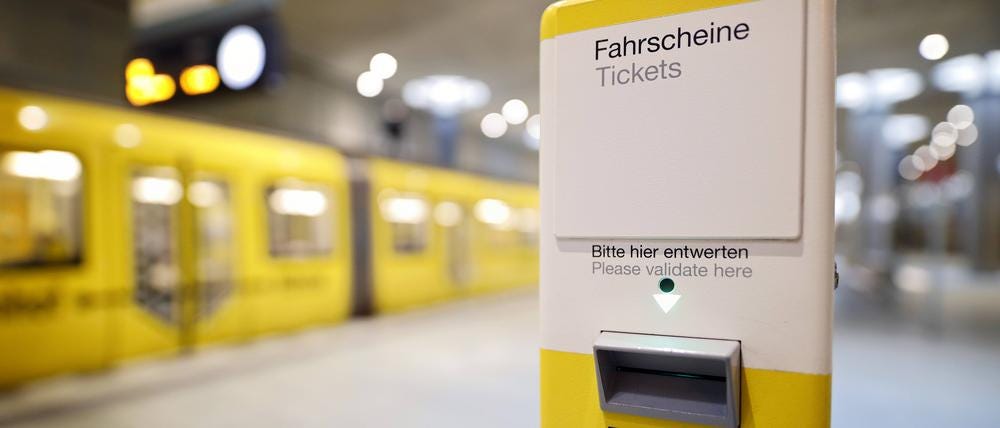BREAKING: Berlin’s €29 Ticket Cancelled
The End of Affordable Mobility?
Berliners will soon bid farewell to the €29 public transport ticket, a short-lived attempt at affordable mobility. Introduced in July 2024, the ticket promised unlimited access to public transport in the AB zone for just €29 per month. Despite initial enthusiasm, the initiative attracted only 210,000 commuters by October, falling short of expectations. Critics, such as the Berliner Fahrgastverband, labeled it a “dead end” that drained city funds, while environmental groups argued it undermined the nationwide €49 Deutschlandticket.
✨IWB is an independent project and we need your support to keep running!✨
Support our work and get benefits back:
As part of Berlin’s 2025 budget, the black-red coalition led by Mayor Kai Wegner (CDU) has decided to scrap the ticket entirely. Economics Senator Franziska Giffey (SPD) acknowledged the decision, stating, “We are going home satisfied,” after a three-hour deliberation. Existing subscriptions can still be used until their expiry dates, but the BVG has been instructed to end the ticket “as quickly as possible,” with January 1, 2025, set as the target date.
The Fallout of Austerity Measures
The €29 ticket’s demise comes amid a broader wave of austerity measures aimed at addressing Berlin’s €300 million budget deficit. While Mayor Wegner deemed the subsidy unsustainable, the SPD floated a compromise of raising the ticket price to €39 to save €100 million. However, this proposal was ultimately rejected, with Wegner insisting the city needed to “tighten the purse strings further.”
The cuts extend far beyond public transport. Berlin’s cultural sector, which defines the city’s global reputation, faces a 12% reduction in funding. Institutions like the Berliner Ensemble anticipate cancelling multiple productions, while theaters, museums, and independent cultural projects brace for the fallout. Additionally, transport infrastructure projects, including plans to electrify BVG’s bus fleet by 2030, are expected to face serious delays.
Housing subsidies worth €150 million will also be replaced with loans and guarantees, and other social initiatives have been scaled back. However, free school meals and daycare remain untouched, providing some relief to families. Resident parking permits have also been spared from price hikes, offering a small reprieve for car owners.
READ ALSO:
Mixed Reactions and Protests
Reactions to the cuts have been polarized. The AfD faction in the Berlin House of Representatives welcomed the end of the €29 ticket, but the Left Party criticized the decision as “an absolute catastrophe.” Cultural workers took to the streets on November 13, with thousands protesting the proposed budget cuts. Their demands, however, went unheeded, as the coalition approved the measures without any changes.
Nationwide Deutschlandticket Under Threat
The €29 ticket’s cancellation has drawn attention to the precarious future of the nationwide €49 Deutschlandticket. Transport ministers from Germany’s 16 federal states warn that the ticket, which provides access to regional and public transport across the country, faces significant financial uncertainty amid the collapse of the federal government’s coalition.
The Regionalisation Act, which allows leftover funds from 2023 to finance the Deutschlandticket until the end of 2024, has yet to be amended. Without urgent action, the ticket could see a price hike from €49 to €58 sooner than the planned 2025 adjustment. The CDU/CSU opposition has expressed support for passing the amendment, but the SPD-Greens minority government needs their cooperation to move forward.
The ticket’s long-term future remains uncertain, with no federal funding commitments beyond 2026. A snap election scheduled for February 23, 2025, is likely to further delay any definitive plans.
Berlin at a Crossroads
The cancellation of the €29 ticket and the wave of austerity measures raise pressing questions about Berlin’s ability to balance its social ambitions with fiscal constraints. While some programs, like free school meals, have been preserved, the cuts signal a challenging road ahead for the city’s transport, culture, and housing sectors. For commuters and cultural enthusiasts alike, the coming months will bring difficult adjustments.
What do you think? We want to hear your opinion!
Be part of the conversation inside the IWB community. Share your opinions and check out the insights of other women in Berlin.
✨ Support International Women in Berlin✨
Help us empower women in Berlin! With every €1 donation, you say a heartfelt 'thank you' to our independent project dedicated to helping women thrive in Berlin. For €5 or €10, enjoy exclusive perks and access to IWB events. Your contribution is vital for us to continue creating a supportive community. 💌 Donate Now – Let's succeed together in Berlin!







